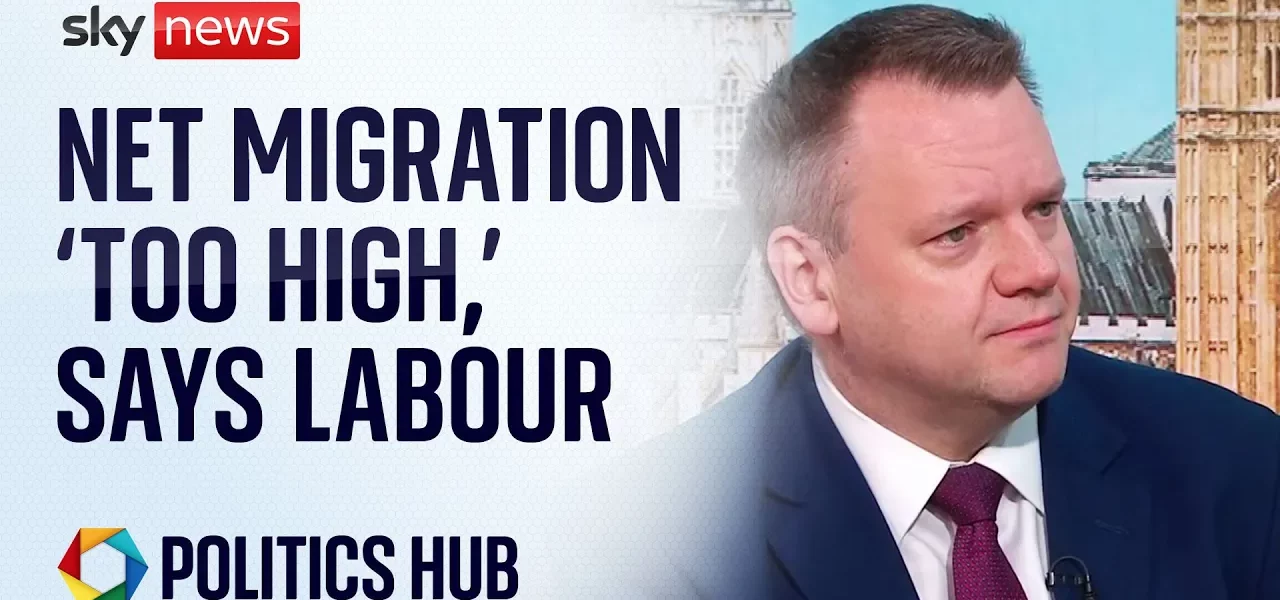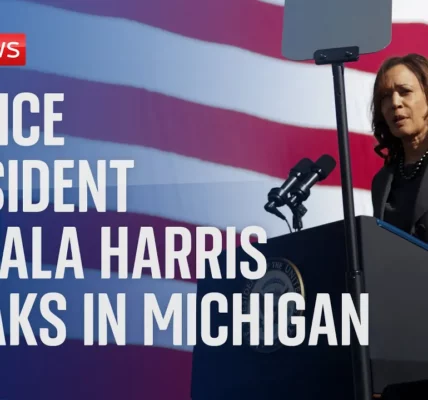Immigration Debate in the UK Election Campaign

This article delves into the ongoing discussions surrounding immigration in the UK, particularly in light of the recent election campaign. With net migration figures reaching 685,000, both legal and illegal migration issues are at the forefront of political discourse.
Introduction
The topic of immigration has become a pivotal issue in the UK’s political landscape, especially as the nation embarks on a new election campaign. The recent net migration figure of 685,000 has ignited debates among political leaders, with varying opinions on what constitutes an acceptable level of immigration. This article explores the views presented by Labour’s Nick Thomas-Symonds on both legal and illegal migration, the implications of these figures, and the proposed solutions to address the pressing challenges of the current immigration system.
Understanding the Current Migration Statistics
As the UK grapples with high net migration figures, it is crucial to understand the underlying statistics and their implications. The figure of 685,000 represents a significant increase, and this section will break down the components of this number.
Contributing Factors to High Migration
- Refugees from Ukraine: The ongoing conflict has led to an influx of Ukrainian refugees seeking safety in the UK.
- British Overseas Passport Holders from Hong Kong: Many individuals from Hong Kong have relocated to the UK following political unrest and changes in governance.
- Labor Migration: The demand for labor in various sectors has contributed to increased legal migration numbers.
Historical Context of Migration Figures
The historical context of migration figures in the UK is essential to understand the current debate. For instance, when the Conservative government came to power in 2010, there was a pledge to reduce net migration to the “tens of thousands.” However, this target was never achieved, leading to skepticism about political promises surrounding immigration reform.
The Labour Party’s Stance on Legal Migration
Nick Thomas-Symonds articulated Labour’s position on legal migration, emphasizing the need for a point-based immigration system that responds to the economy’s needs. This section outlines Labour’s approach and proposals for future migration levels.
Point-Based Immigration System
The point-based immigration system is designed to prioritize skills and economic contributions. Key aspects include:
- Assessment of candidates based on skills, qualifications, and job offers.
- Regular evaluations to adjust immigration levels based on economic needs.
- A focus on transparency and public trust in the immigration process.
Expectations for Migration Numbers
While Thomas-Symonds refrained from providing a specific number for legal migration levels, he emphasized the expectation for these figures to decrease over time as the government adapts its policies to current realities.
Addressing Illegal Migration: Challenges and Solutions
The issue of illegal migration remains a contentious topic in the UK, particularly with the presence of individuals residing in temporary accommodations such as hotels and barges. This section discusses the Labour Party’s approach to tackling illegal immigration.
Current Government Failures
Thomas-Symonds criticized the Conservative government’s handling of illegal migration, highlighting the backlog of asylum claims and inadequate processing systems. Key points include:
- Failure to manage and process asylum claims effectively.
- Inadequate return agreements with countries, particularly France.
- Use of temporary accommodations that are both costly and unsuitable for vulnerable populations.
Proposed Labour Solutions
Labour’s strategy for managing illegal migration includes:
- Implementing a dedicated casework unit to expedite asylum processing.
- Re-establishing long-standing asylum accommodations instead of temporary solutions.
- Fostering international cooperation to secure effective return agreements.
Conclusion
The immigration debate in the UK is complex and multifaceted, with high net migration figures prompting urgent discussions on both legal and illegal migration. As articulated by Nick Thomas-Symonds, Labour aims to create a fairer and more efficient immigration system that reflects the needs of the economy while addressing the challenges posed by illegal migration. As the election campaign unfolds, it will be crucial for voters to consider the implications of these policies on the future of immigration in the UK.
For further insights on immigration policies and their impact on society, be sure to check out our related articles on immigration reform in the UK and the economic impact of migration.
“`




